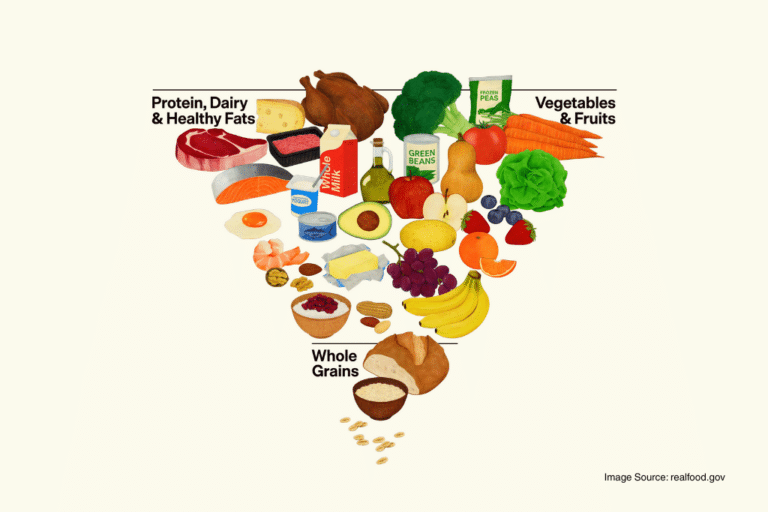Successful management of thyroid disease can feel like trying to putting together a jigsaw puzzle. There are many different pieces that, with patience and perseverance, all fit together to form a beautiful image. Today, we will focus on a small section of this puzzle dealing with nutrition and supplements related to thyroid disease.
Because thyroid conditions are so prevalent, many supplements on the market claim to “support thyroid function.” Most of these supplements are, for the most part, harmless, but it is important to know that some may have undesirable side effects. Some may even worsen your thyroid condition. Keep reading to find out how to optimize your supplements safely and effectively.
How can I optimize thyroid function with supplements?
Before we go any further, it is important to know which nutrients the thyroid needs for optimal functioning.
The following list contains some of the most important thyroid nutrients:
Iodine– is crucial for thyroid function. Its role in the body is to support thyroid hormone production. Both thyroid hormones (T3 and T4) contain iodine. Also, iodine deficiency causes thyroid disease. Please note, in general, adults should not consume more than 1100 mcg of iodine per day. Going above this amount may result in undesirable side effects, such as an enlarged thyroid gland (goiter).
- Zinc– is involved with the production and mechanism of thyroid hormones. It can help a “leaky gut” and improves immune function. Supplementing with too much zinc can throw the zinc/copper balance off and create more problems.
- Selenium-this mineral protects the thyroid gland from oxidative damage. It is also involved in the production of thyroid hormones. Doses above 200 mcg/day can be toxic.
- Iron– is used to convert T4 into T3, the active form of the thyroid hormone. If you experience very heavy periods, get your ferritin checked to ensure you aren’t iron deficient. Don’t take iron unless you know you need it. Iron overload is a serious medical problem.
Your thyroid also needs other vitamins, such as B vitamins or Vitamin E and A. Some foods that naturally contain these nutrients are fish, nuts, eggs, and iodized salt.
What supplements are best for hypothyroidism?
Hypothyroidism is a condition where your thyroid gland does not produce enough thyroid hormones. Hashimoto’s thyroiditis is a type of hypothyroidism where your body mistakenly attacks your thyroid gland. Another name for this is an autoimmune disease. You can read more about hypothyroidism and Hashimoto’s thyroiditis here.
The following supplements can be beneficial for those suffering from the disease:
- Vitamin B12 – deficiency in Vitamin B12 is commonly found in those suffering from Hashimoto’s disease. Taking a high-quality B12 or B complex vitamin can help maintain these levels. I recommend B vitamins that have been methylated. In particular, I like Thorne Basic Bs.
- Magnesium– there is a link between a magnesium deficiency and increased thyroid antibody levels. Supplementing with magnesium can improve Hashimoto’s symptoms. High doses of magnesium can cause diarrhea.
- Vitamin D– people who suffer from Hashimoto’s are more likely to be deficient in Vitamin D, and deficiency can harm thyroid function. Avoid megadoses of Vitamin D. High levels can worsen hot flashes and depress the immune system.
- Myo-Inositol– inositol is a type of sugar that plays an integral role in thyroid function. Some evidence suggests that daily therapy with myo-inositol and selenium may improve thyroid function in those who suffer from Hashimoto’s thyroiditis.
- Curcumin– protects your thyroid from oxidative damage. However, you should avoid this if you have low ferritin, as it may further lower it.
- Vitamin C– studies suggest supplementing with Vitamin C may help decrease thyroid antibodies.
- Ashwagandha – An 8-week study in 50 people with hypothyroidism found that taking 600 mg of ashwagandha root extract daily led to significant improvements in thyroid levels, compared to taking a placebo.
Those in the ashwagandha group showed significant increases in triiodothyronine (T3) and thyroxine (T4) levels of 41.5% and 19.6%, respectively. Furthermore, thyroid-stimulating hormone (TSH) levels decreased by 17.5%.
People with nightshade sensitivities should not take ashwagandha.
Just because you can doesn’t mean you should.
Some people may be tempted to use over-the-counter thyroid glandulars. These products are made from dried ground-up pig, sheep, or cow thyroid tissue. These products are not supposed to contain active thyroid medication, but one study from 2014 that analyzed 10 thyroid supplements found that most of them contained detectable amounts of T3 and T4. Some of the products tested contained more T3 and T4 than healthcare providers typically prescribe to people with hypothyroidism. These products are best avoided without guidance.
What supplements are best for hyperthyroidism?
Hyperthyroidism is a condition where your body produces too much thyroid hormone. Today, we will focus on the most common cause of hyperthyroidism in the United States, Graves’ disease.
The following supplements can be beneficial for those suffering from Graves’ disease:
- Selenium– a deficit of selenium can increase your risk of Graves’ disease.
- Vitamin D– studies show that people with Graves’ disease are more likely to have deficient Vitamin D levels. Supplementing with Vitamin D to restore levels may improve thyroid function.
- L-carnitine– hyperthyroidism decreases your body’s levels of carnitine. Carnitine plays a crucial role in energy production. Replacing L-carnitine may help decrease negative symptoms of hyperthyroidism.
- Vitamin B12– people with Graves’ disease are at an increased risk of becoming Vitamin B12 deficient. Taking a high-quality B12 or B complex vitamin can help maintain these levels.
How can I ensure that I am safely choosing supplements for my thyroid condition?
The best thing you can do to optimize safety when choosing supplements is to work with a trained healthcare professional who can help you choose what you need based on your lab tests (get a FULL thyroid panel). They can help you choose the correct supplement based on your individual needs. It is also essential to start or stop a new supplement to let your prescriber and pharmacist know. Lastly, choose supplements from trusted brands that test their products for quality and purity using organizations like USP and NSF International.
TL;DR
Research shows that certain nutritional supplements can improve the health of your thyroid. However, it is important to choose supplements based on testing to assess your individual needs and health conditions. If you are interested in adding supplements to your thyroid regimen, work with a trained healthcare professional to obtain appropriate testing to ensure maximum safety and effectiveness.
Dr. Anna Garrett is a menopause expert and Doctor of Pharmacy. She helps women who are struggling with symptoms of perimenopause and menopause find natural hormone balancing solutions so they can rock their mojo through midlife and beyond. Dr. Anna is the author of Perimenopause: The Savvy Sister’s Guide to Hormone Harmony. Order your copy at www.perimenopausebook.com.
Dr. Anna is available for 1-1 consultation. Find out more at www.drannagarrett.com/lets-tal




